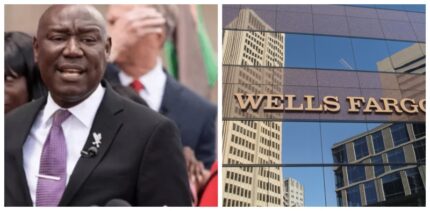A class-action lawsuit has been filed against Wintrust Financial, alleging claims of discrimination against Black homeowners, reports TheRealDeal.com. The Illinois-based company houses 15 banks across Chicago and southern Wisconsin.

The lawsuit was filed in Chicago on May 25, by prominent civil rights law firm Stowell & Friedman. According to the complaint, “Wintrust has created artificial, arbitrary and unnecessary barriers to fair housing for Black and/or African American borrowers.” It also states that Black borrowers receive higher average interest rates at 3.31 percent compared to white borrowers at 3.21 percent.
Wintrust is accused of having discriminatory policies that “extracted an enormous amount of wealth out of Black and/or African American households through higher costs, fees and interest rates than charged to non-Black, non-African Americans.”
The lead plaintiff, Kathleen Bankhead, is an assistant state’s attorney in Cook County. She claims she paid more fees and higher rates to purchase in a “majority-minority” neighborhood in Chicago than non-Black home buyers had to pay.
A recent Bloomberg analysis report revealed that Wells Fargo Bank denied at least half of its Black applicants for mortgage requests. It approved only 47 percent of the Black homeowners who completed their refinance applications in 2020.
Stowell & Friedman firm is also involved in another class-action lawsuit against Well Fargo filed in California. Civil rights attorney Ben Crump serves as head counsel in the case filed initially in February 2022 and amended months later in April on behalf of racial redefining and lending discrimination victims. It details discriminatory policies against Black Wells Fargo customers who applied for a home mortgage and Black customers given higher interest rates. It explains how Wells Fargo’s discriminatory mortgage practices are “killing Black opportunity.”
“We all know the pandemic took a disproportionate toll on Black Americans,” Crump noted on his website. “But if Wells Fargo had just extended the same opportunities to Black customers as they did to white customers, we could have enjoyed unprecedented progress in closing the homeownership gap among Black Americans, building Black wealth and family stability, driving investment in Black neighborhoods, and increasing intergenerational wealth for Black families.”
He said, “Instead, Wells Fargo systematically denied Black Americans mortgages, charged them higher interest rates, refused to invest in Black neighborhoods and denied Black Americans the benefits the federal government intended for all Americans to weather the pandemic.”
According to USA Today, Wells Fargo settled another case that detailed a “pattern” of discriminatory practices against Black and Hispanic borrowers in 2012. The bank was found in violation of fair-lending laws and agreed to a payout of over $175 million.
Some would argue the third-largest bank in the country having a history of racial discrimination toward Black consumers is beyond concerning, with a “pattern” of higher denial rates and discriminatory practices helping sustain the racial homeownership gap. As early as the 1930s, Black people were refused loans by banks and banned from moving into white neighborhoods.
A WBUR report found that Black and Hispanic applicants in Boston were denied mortgages at three times the rate of white applicants between 2015 and 2020. It also found that loans for homes in predominantly Black areas were denied at 2.5 times the rate of loans for homes in predominantly White areas.
A 2021 Massachusetts Community Banking Council report explained Black middle-class borrowers with high credit scores and a debt-to-income ratio of less than 43 percent still encountered higher denial rates.
Former research analyst Sarah Philbrick disclosed that “Even high-income Black borrowers are less likely to receive a loan or are more likely to be denied a loan than their white counterparts.”



